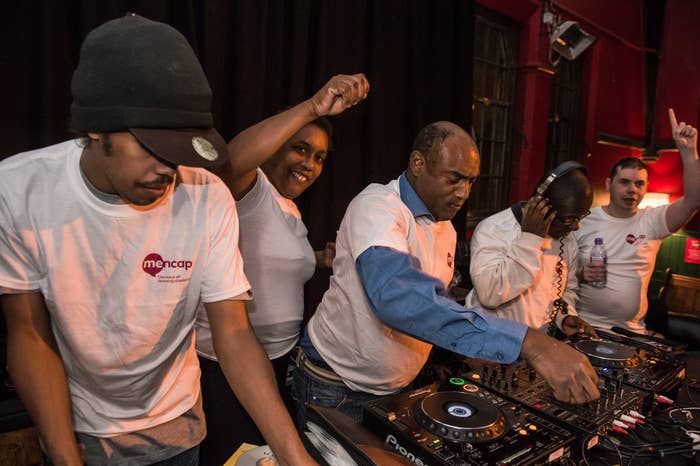
Almost 1 in 4 disabled people have been verbally abused by a member of the public or staff while socialising in a club or music venue, according to a new report.
The research, commissioned by national disability charity Mencap, also found as many as 1 in 3 had felt bullied by staff while out.
Mencap's findings, which asked 300 people for their experiences around clubbing and going out, also found 80% of disabled individuals would go out more if staff at venues were more understanding. Just under 30% said they had felt afraid of asking venue staff for help.
Kelsey Ramsey, 24, who has a learning disability, was at a music festival over the summer, and said a man “called me a retard every time he saw me".
"I’ve been called the r-word before, and I know that people make comments," she said in a statement given to BuzzFeed News. Ramsey, who says that music is among her main interests, said the man's comments made her feel unwelcome.
She added: "When you have a learning disability people look at you and judge how you act and how you look, so that can stop me from going out because I worry people are going to make fun of me. It really knocks your self-confidence.”
Clubs and music venues are covered by the 2010 Equality Act – which means they are legally required to provide for disabled people. However, anecdotally, many disabled clubbers say this isn't always the case.
Last night I was turned away from Visions Video Bar in Dalston for being disabled
Katouche Goll, 19, a history student, was been left in tears earlier this year after being turned away from a London club because she has a physical impairment.
Goll, who has cerebral palsy – which affects mobility and coordination – said staff at the club told her "something along the lines of ‘We’re sorry, but you can’t come in with your crutches because the venue is inaccessible for you’."
“When you’re disabled people always think they know better than you about the things you want,” she added.
She told BuzzFeed News that she wasn't at all surprised by the research's findings. "What we see with a lot of public venues, they are a reflection of the ills and the prejudices that we have in our society," she said.
Despite being a strong self-advocate in September, Goll commented she had "been in similar circumstances [when] I have felt hesitant to say something".
"There is an element of taking it on the chin," she said, "and a sort of attitude of ‘You know how the world is.’ But in principle, our measure of what is right, what is wrong, has been skewed." She added: "People blame themselves."
Goll is not alone in being victimised. Earlier this month, 37-year-old Martyn Hooker, who has cerebral palsy, said he was manhandled by nightclub staff in Torquay, Devon.
"I won't go out on my own again. It has knocked my confidence," he told local newspaper Exeter Express and Echo. "I don't understand what happened. I shouldn't have been treated like this."
Rossanna Trudgian, Mencap's head of campaigns, said the research was shocking and that everyone has a right to go out and enjoy themselves.
"But the reality is if you are young and have a learning disability you’re likely to be blocked out," she told BuzzFeed News, "due to fear of staff or public attitudes."
Trudgian added: "What’s worse, bullying seems to be one of the reasons people with a learning disability don’t attend gigs or nightclubs, and this needs to change."
